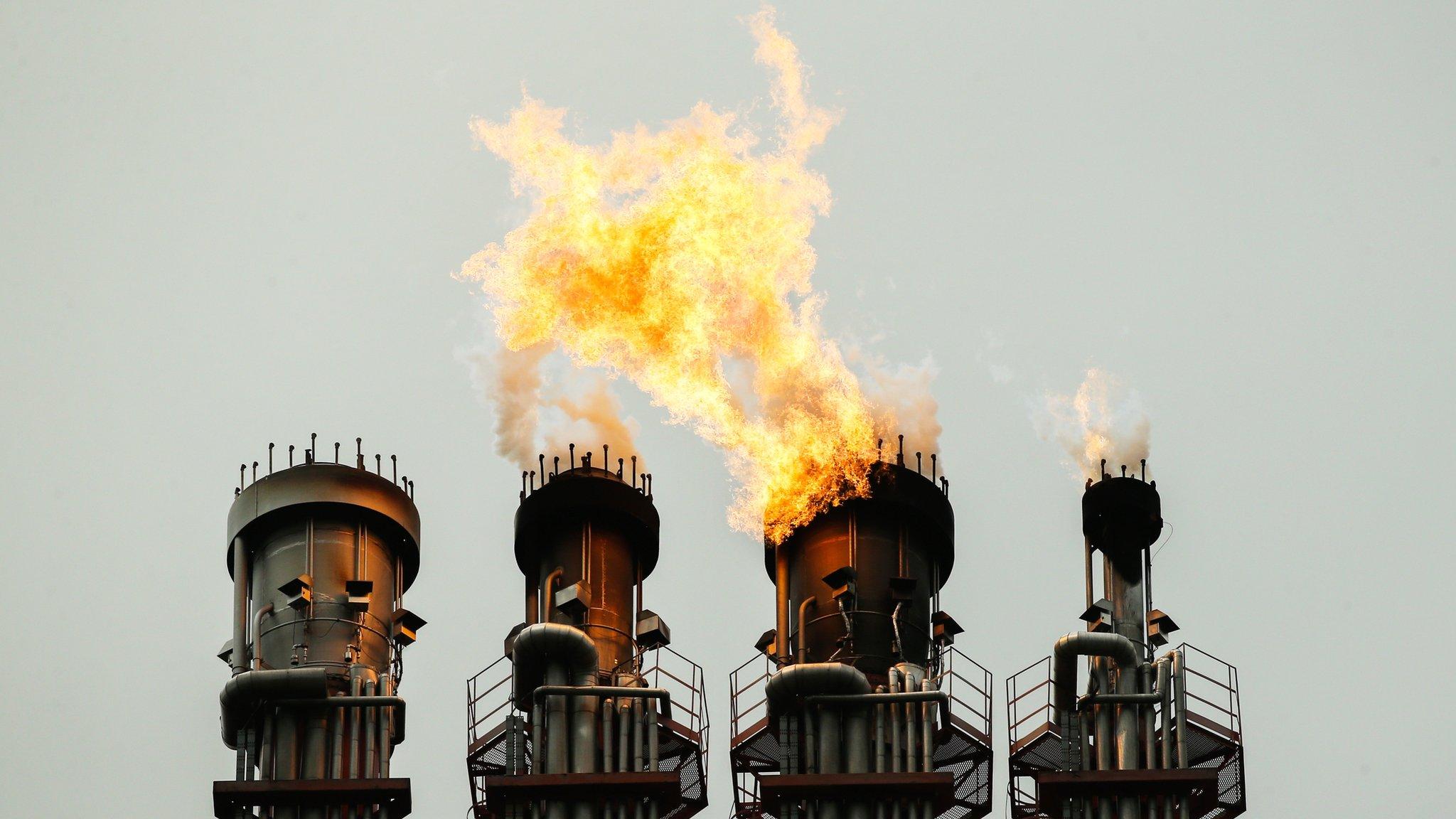Oil prices rise on planned Opec cuts
- Published
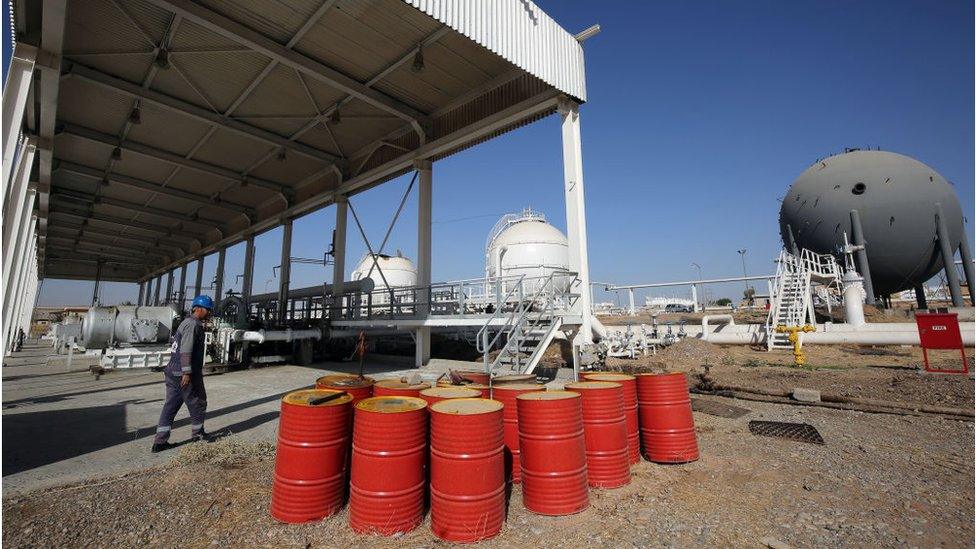
Major oil producers have agreed to cut production by more than one million barrels per day in a bid to boost energy prices.
Opec members, as well as countries allied with the cartel led by Russia, announced the plans on Friday, sending the price of Brent crude up almost 5%.
The cuts are due to start in January and last six months.
The plans come as the industry is grappling with a roughly 30% slide in prices since October.
The fall has been spurred by forecasts for lower demand, as well as a surge of shale production in the US.
Officials said Opec would reduce output by 800,000 barrels per day, based on October's production levels.
Allies of the cartel led by Russia agreed to cut an additional 400,000 barrels per day.
Venezuela, Iran and Libya - countries where the industry has already been disrupted by US sanctions or unrest - are exempt from the plans.
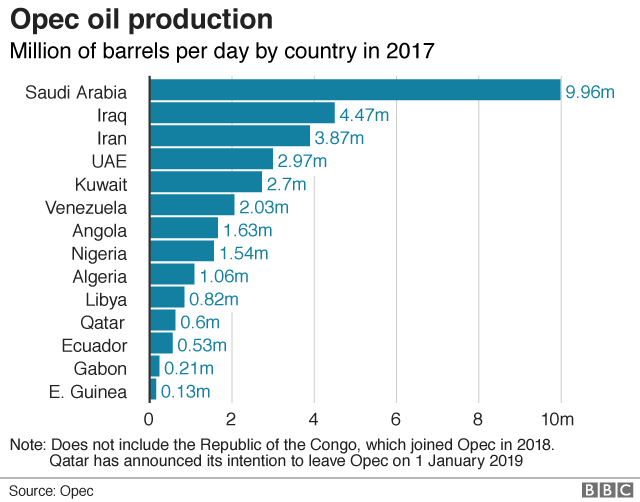
US President Donald Trump has called on Saudi Arabia and other countries to keep prices low.
It is not clear how much of an effect on prices the plans will have over the long run.
Analysts said the cuts may end up amounting to less than announced, and not enough to counteract the broader trends.
We continue to expect that slower economic growth will weigh on oil demand next year, which coupled with rapid growth in US production, will put renewed downward pressure on prices," said Caroline Bain, an economist at Capital Economics.
- Published3 December 2018
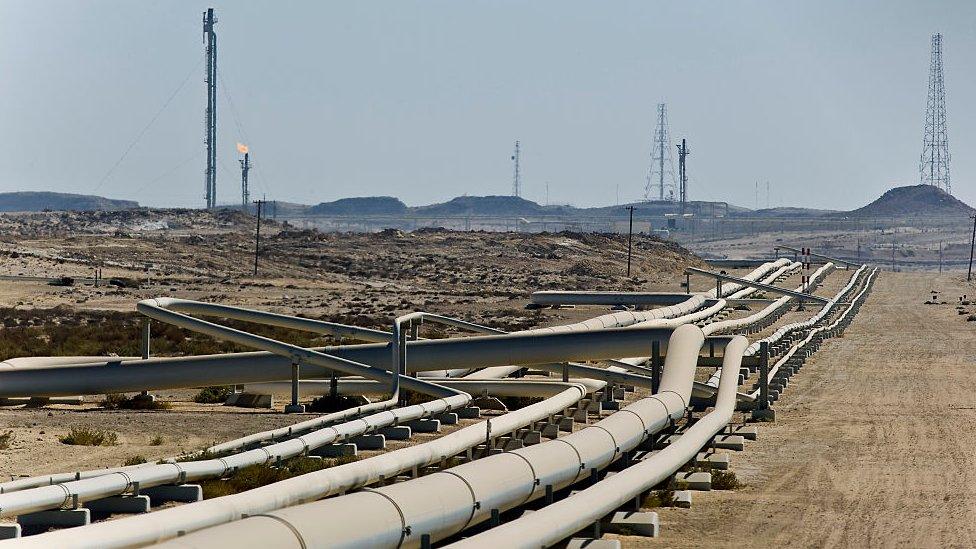
- Published6 December 2018
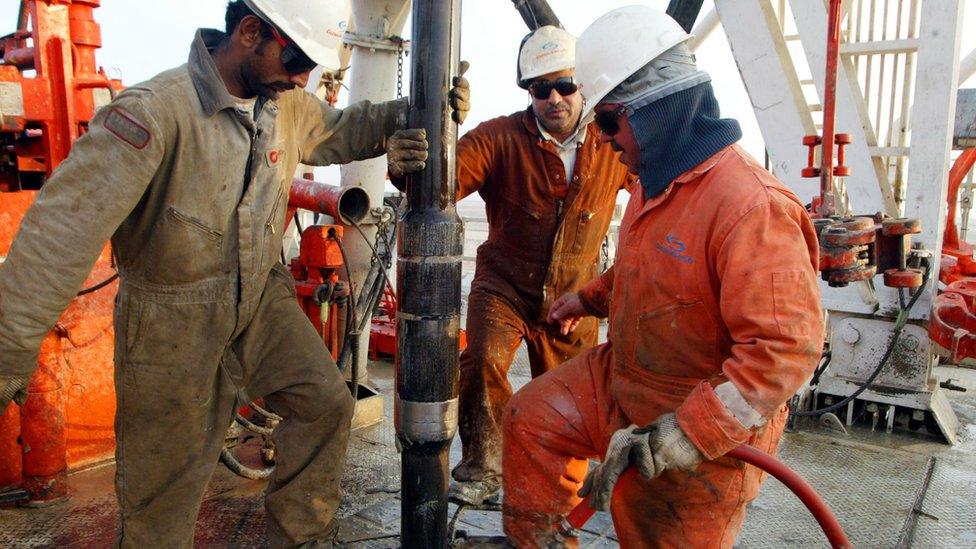
- Published7 December 2018
